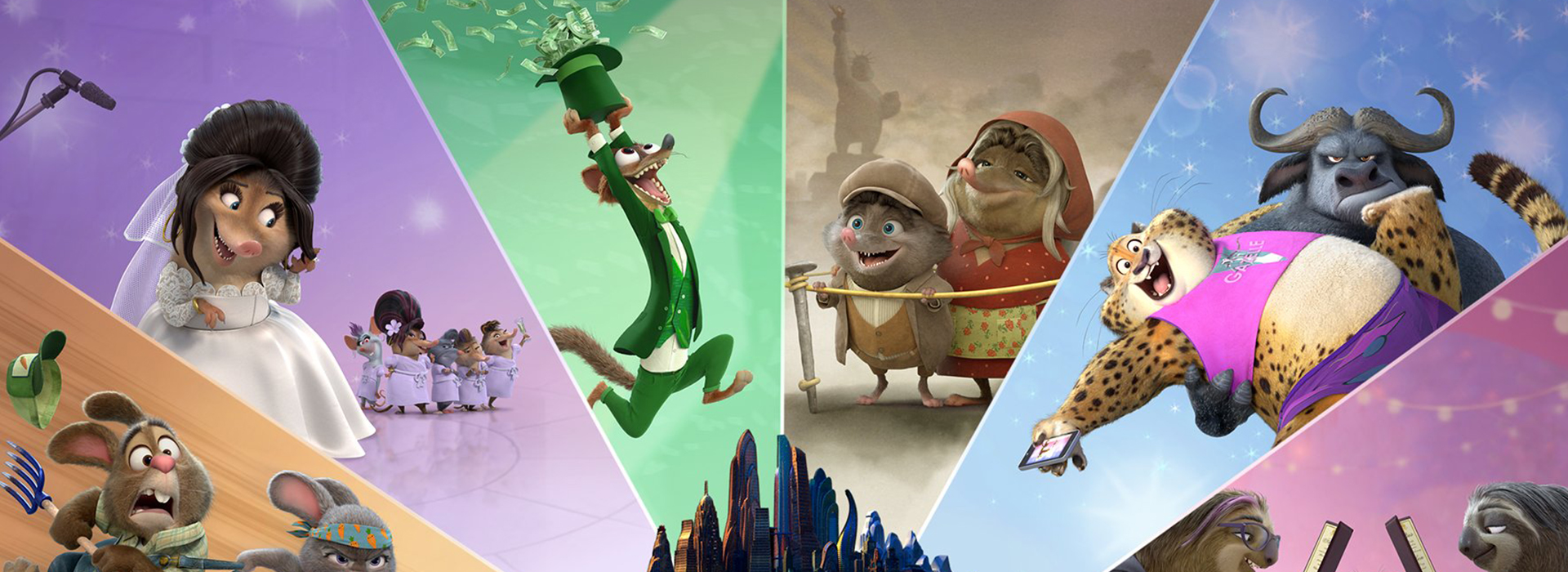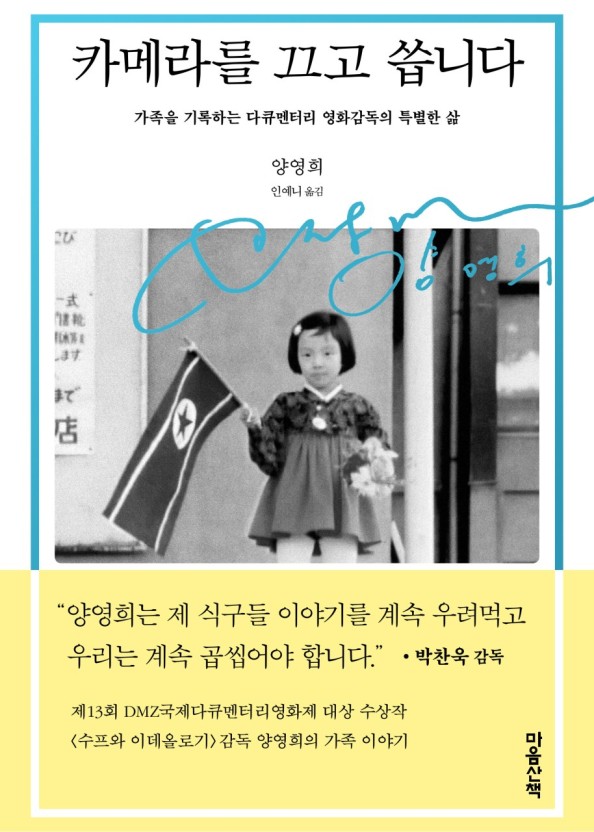
Zootopia+ (Disney+)
Lee Yejin: “Zootopia” is an animated film about a place called Zootopia where various animals live together and try to find ways to overcome prejudice and discrimination. “Zootopia+” is a TV series of short six episodes with six members of that film’s supporting cast each receiving a full-episode treatment. It feels like a surprise gift to the fans of the original film. The first episode (Episode 1, “Hopp on Board”) follows Mr. and Mrs. Hopps – the proud parents of Zootopia’s first bunny police officer, Judy Hopps – after Judy has boarded the train to Zootopia. As you watch the Hopps rescuing the youngest Molly hopped on a train, you will see exactly where Judy gets her energy, optimism, and fearlessness from. A shabby arctic shrew who becomes Tundratown’s most powerful boss, the fourth episode (Episode 4, “The Godfather of the Bride”) shows us Mr. Big carving out his world in Zootopia. Equipped with this new insight, we realize how incredibly generous Mr. Big’s reaction was after learning he had unwittingly buried his precious grandmother with a skunk butt rug from Nick. In Episode 6, “Dinner Rush”, the unforgettable scene-stealer from the film, Flash, and his girlfriend Priscilla show us what sloth couplehood looks like. We also get the unexpected yet exhilarating backstory on how Flash the sloth was pulled over by Judy and Nick for speeding. From Police Chief Bogo and Clawhauser, the amiable face of Zootopia’s police department and a massive fan of Gazelle, Zootopia’s super star singer (Episode 5, “So You Think You Can Prance”), to Mr. Big’s daughter, Fru Fru (Episode 2, “The Real Rodents of Little Rodentia”), and Duke Weaselton whom we remember being chased by Judy (Episode 3, “Duke the Musical”), the series is organically connected to the storyline from the original film and gives these Zootopia residents proper character arcs that feel alive. More than just a look behind-the-scenes, these episodes are part of Disney’s recent universe-building and scale-out efforts upon the Disney+ platform for a continuous stream of engrossing entertainment content, and we can most certainly appreciate this with “Zootopia+”. Each episode runs for about five to six minutes, but the delightful genre-blending of car chase action, musical, sitcom, reality competition, and other formats that are jam packed in the series make for thoroughly enjoyable fun. For Korean readers, we recommend tasting the different flavors of character interpretations by the incredible Korean voice actors in the dubbed version.
Armageddon Time
Im Sooyeon (CINE21 Reporter): It is 1980, Queens, New York City. Paul and Johnny go to the same public school, and both are viewed as problematic by the teachers, though for different reasons. Neither Paul’s dream of becoming an artist nor Johnny’s hopes of one day becoming a NASA scientist are taken seriously, and the two quickly become fast friends as they share daydreams and engage in thrill-seeking behavior that gets them in trouble with the law. “Armageddon Time” is a self-examination drama by a boy from a third-generation immigrant family who stands upon the intersection of Jewish and white identities as he becomes aware of the dilemma of social classes in modern society. Paul’s parents are critical of Ronald Reagan and are most likely Democrats, but they show how self-serving they actually are when Paul and Johnny become embroiled in a crime. Paul’s gradual recognition of his white privilege despite always having considered himself an outcast of society merges with the international politics of the Reagan era that heightened tensions during the New Cold War with the messaging that the USSR was a force of evil, and the incipient signs of (Post) Trump Era and its racist rallying cry, to form the deeper backdrop of the film’s story. Drawing from director James Gray’s own experiences growing up in Queens, the autobiographical film acts like a scalpel that reveals the illusory nature of the American Dream.
Writing With the Camera Turned Off (Yang Yong-hi)
Kim Gyeoul (writer): Though there may be readers who decided to pick up this book after watching the director’s films, there are some who did not know director Yang Yong-hi or her work, but were drawn to this book after reviews recommended it. I belong to the latter group. Yang has won multiple film festival awards for her now completed trilogy of documentary films, “Dear Pyongyang”, “Goodbye, Pyongyang”, and “Soup and Ideology”. I had not been able to see any one of these, but because of this I was able to open the pages without any expectations as to how the storyline was going to unfold. And after finishing the book, more than anything, I wanted to explore her filmography.
The story of Yang Yong-hi’s family is beyond what an average Korean can imagine. Her parents are ethnic Koreans living in Japan. Though claimed by no nation, her parents are ranking officers in the General Association of Korean Residents in Japan organized by the North Korean diaspora in Japan, also known as “Chongryon”. Her three older brothers move “back” to North Korea in a move described romantically as returning to the “arms of the homeland”. Certainly, with great passion her father led this movement of sending young ethnic Koreans in Japan to North Korea. Family members who remained in Japan regularly visited these three brothers in North Korea. Eventually, their lives gradually become more challenging, and as Yang takes in more of the cultural norms of Japan and the United States, she clashes with her parents. The portraits of Kim Il-sung and Kim Jong-il hanging in the living room are juxtaposed with movie posters in her bedroom. The anxiety and uncertainty over re-entering the US after the 9/11 attacks as a film student in New York City. Visiting Pyongyang with a camcorder so that her parents can see their grandchildren.
Where else can we read and watch such stories unfold? The family itself is a record of modern history. Testifying on the Jeju April 3rd incident, the lives of ethnic Koreans in Japan, and life in North Korea; the lines and lines of family’s record of their lives tossed upon the waves of history grab the reader and do not let go until the very last page has been turned.
“Ah, Life !” (Joe Layne)
Kim Yunha (music critic): Sometimes too much talent can eclipse ability. This might appear to an oxymoronic statement, but once you have listened to Joe Layne’s latest album, “Life O Life”, the meaning becomes immediately clear. Listen close to the laid-back guitar lines and the warm, reassuring chorus of “Ah, Life!”, the first track on the album that sounds like 70s Motown soul condensed into pure sweetness, and you cannot help but exclaim : “Where have you been hiding all this time?” Of course, Joe Layne has not been in hiding. He first appeared on the music scene in 2016 as part of singer-songwriter DEAN’s band. He released his own first album, “Yesterdays”, in 2019 and in the short time until the latest addition he has released a total of five full-length albums. To this track record, this incredibly prolific artist nonchalantly adds that his music as stage name, Joe Layne, is just one-fourth of his musical projects. “Life O Life” thus brims with the explosive inspiration and creativity of Joe Layne whose work ranges from broadcast music libraries to music director in performing arts productions and everything in between. Joe Layne’s guitar and emotionally rich vocals that form the core of the album are embraced by his band of long-time collaborators who fluidly frame the carefully timed moments of irregularity in emotion and beat with their rhythm’s steadying breath. Nothing much is better than this joy of discovering a little piece of talent that shines simply with its own light in a world cluttered with contrived intentions.
Unauthorized reproduction and distribution prohibited.
